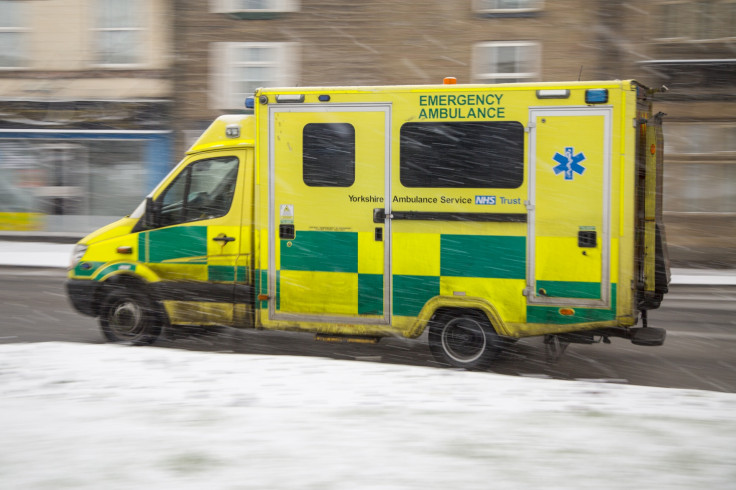Surge in A&E Visits for Sore Throats, Backaches, Insomnia and Coughs Raises Concerns
The rise in the number of individuals seeking care for non-emergency complaints such as sore throats, insomnia, coughs, and earaches is creating significant challenges for healthcare providers.

In recent times, A&E departments across the country have witnessed a surge in patients seeking emergency care for what might be considered minor ailments.
Conditions such as sore throats, insomnia, coughs, and earaches are becoming increasingly common reasons for hospital visits, adding significant pressure to an already-stressed healthcare system.
Data analysed by the PA news agency reveals a substantial increase in A&E attendance for various non-emergency issues, shedding light on the complexities and challenges faced by both patients and healthcare providers.
Among the notable findings, cases presenting sore throat as the chief complaint have seen a staggering 77 per cent increase between 2021/22 and 2022/23, skyrocketing from 191,900 to 340,441 cases.
Patients seeking medical attention for coughs rose by 47 per cent, from 219,338 to 322,500, while nosebleeds witnessed a 20 per cent surge, increasing from 47,285 to 56,546. Backache complaints saw a modest two per cent rise, reaching 324,443 cases, and earaches experienced a 22 per cent increase, escalating from 191,387 to 233,723.
Moreover, individuals visited A&E departments requesting medication, with cases rising by a fifth, from 31,960 to 38,435. This trend indicates a growing reliance on emergency services for issues that could be effectively managed through more appropriate channels such as pharmacies and NHS 111 online.
Miriam Deakin, the director of policy and strategy at NHS Providers, emphasises the strain on the NHS due to persistent pressure on primary care services. Patients, unable to access timely care elsewhere, resort to A&E for what could be managed through alternative services.
Deakin suggests that minor ailments could be handled through pharmacies and NHS 111 online, relieving the burden on emergency departments designed to provide urgent care to those in critical need.
However, she underscores the need for increased funding and government support to boost the capacity of staff, beds and equipment in these alternative settings.
Dr Adrian Boyle, president of the Royal College of Emergency Medicine, views the rise in non-emergency cases as symptomatic of a more extensive issue. He highlights the need for a well-resourced and staffed healthcare system with adequate capacity at every level.
Community-based services, A&E departments and in-patient care are all facing significant challenges, with dangerously overcrowded A&E departments reflecting the broader strain on the healthcare system.
Dr. Boyle emphasises that patients, lacking clinical expertise, should not be expected to gauge the severity of their condition, and those in need of urgent care should not hesitate to seek help in A&E.
The data reveals a 44 per cent increase in A&E complaints related to fever, surging from 566,531 to 813,609 cases in the past year. Hiccups and insomnia cases rose by three per cent (from 794 to 819) and six per cent (from 1,265 to 1,343), respectively. Diarrhoea cases experienced a notable 12 per cent jump, from 106,072 to 119,019, nasal congestion rose by 30 per cent (from 12,380 to 16,115) and nausea cases increased by 14 per cent, reaching 16,161.
The strain on A&E departments is not only a matter of inconvenience for patients but also a significant drain on healthcare resources. Out of the 8.6 million attendances, a substantial portion resulted in patients being discharged with written advice.
This indicates that a considerable number of cases could have been effectively managed through alternative, non-emergency healthcare channels.
The increasing trend of individuals seeking emergency care for minor ailments paints a concerning picture of the strain on the healthcare system. To alleviate this pressure, a multifaceted approach is necessary.
Enhancing the capacity of alternative healthcare services, such as pharmacies and online platforms like NHS 111, is crucial. Adequate funding and support from the government are imperative to boost the resources and capabilities of these services.
Moreover, addressing the underlying issues contributing to the strain on A&E departments, such as the stretched community-based services and inadequate in-patient bed capacity, is essential for ensuring a well-functioning healthcare system.
Dr Adrian Boyle's call for a system with sufficient capacity at every level underscores the need for a comprehensive and sustainable healthcare strategy.
© Copyright IBTimes 2025. All rights reserved.





















